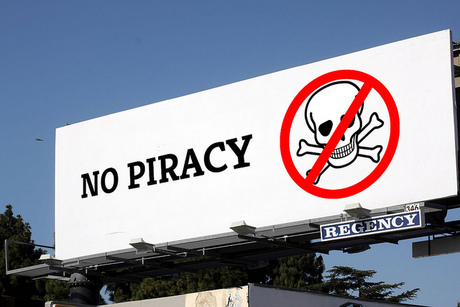Telco sector open to site blocking, "three strikes" scheme

The Australian telecom industry is open to the prospect of blocking known piracy sites and implementing a “three strikes” scheme to penalise illegal downloaders.
But the federal government should consider implementing its UK counterpart’s strategy for combating online piracy, which involves attempting to cut off advertising revenue for pirate site operators, the industry has advised.
In a submission to the government’s discussion paper on online copyright infringement, telecom industry peak body Communications Alliance warned that some of the government’s proposed tactics would damage the industry and consumers alike.
Any drastic action, such as blocking sites, should be limited to only flagrant offenders and should have safeguards to protect consumers and the telecom industry, it states.
Communications Alliance CEO John Stanton said the body “recommends that the government consider closely the ‘follow the money’ strategies being pursued in the United Kingdom, which attack the viability of infringing websites by choking off the flow of advertising revenues”.
These strategies include replacing banner ads on pirate sites with messages that indicate that the site is under investigation for accommodating piracy.
Stanton also said the industry is ready to engage in good-faith negotiations over the prospect of introducing a “three strikes” graduated response scheme, but remains “by no means convinced” that such a scheme would be effective.
“A range of issues would need to be resolved - not least who would pay for such a scheme,” he said.
“We reject the rights holders’ view that Australian internet users should foot the bill - via ISPs - for doing the rights holders’ police work. Rights holders have existing legal rights - seldom used - to take action against anyone who infringes their copyright.”
The copyright industry is pushing for a scheme of escalating action against illegal downloaders. Such schemes have been proposed around the world and typically culminate in fines and blocking or slowing internet access for repeat offenders.
In a statement, Communications Alliance said it is “strongly opposed” to the government’s proposals to reverse the precedent-setting iiNet verdict shielding ISPs and other organisations from being found liable for authorising copyright infringement for its users engaging in piracy.
It argued that such a move would create risk and uncertainty for consumers and ISPs and have potentially damaging side effects for a wide range of organisations, including universities, libraries and internet cafes.
Why we need to redefine cybersecurity success to support CISOs
When Notifiable Data Breaches statistics are released we should look at the nature of the...
Is 2026 the year of identity? Just follow the money
What $40 billion in cyber acquisitions says about the future of identity security.
Proactive cybersecurity must lead innovation in Australia’s AI future
AI presents extraordinary opportunities for productivity, innovation and growth but it also...




